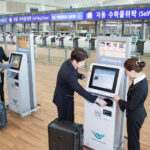Ensuring accessible travel experiences for individuals with disabilities has become a focal point in the travel industry, and adaptive technologies are playing a pivotal role in transforming this vision into reality. This article delves into the impact of adaptive technologies on accessible travel and how innovative solutions are making journeys more inclusive and comfortable for everyone.
Enhancing Mobility with Smart Navigation
Adaptive technologies are revolutionizing travel for individuals with mobility challenges. Smart navigation systems, often integrated into mobile apps, provide real-time information on accessible routes, ramps, and elevators. These technologies empower travelers to plan their journeys more efficiently, navigate unfamiliar environments, and have greater independence in their exploration.
Augmented Reality (AR) for Sensory Enhancements
Augmented Reality (AR) is being harnessed to provide sensory enhancements for individuals with visual impairments. Smart glasses and AR applications can offer real-time information about surroundings, interpret signs, and even describe points of interest. This technology fosters a more immersive travel experience, allowing individuals with visual impairments to engage with their environment confidently.
Inclusive Communication through Speech Recognition
Speech recognition technology is breaking communication barriers for travelers with speech and hearing impairments. Mobile apps equipped with speech-to-text and text-to-speech features facilitate seamless communication with service providers, hotel staff, and fellow travelers. This inclusivity ensures that everyone can effectively express their needs and preferences during their journey.
IoT-Enabled Smart Accommodations
The Internet of Things (IoT) is transforming accommodations to be more adaptive and responsive to the needs of guests with disabilities. Smart hotel rooms equipped with IoT devices can automate tasks such as adjusting room temperature, controlling lighting, and operating blinds through voice commands or mobile apps. This level of adaptability enhances the overall comfort and accessibility of accommodations.
Personalized Travel Experiences with AI
Artificial Intelligence (AI) is tailoring travel experiences to the unique needs of individuals with disabilities. AI algorithms analyze preferences and requirements, offering personalized recommendations for accessible attractions, restaurants, and activities. This customization ensures that travel itineraries align with the specific needs and interests of each traveler.
Shaping a More Inclusive Travel Landscape
Adaptive technologies are reshaping the landscape of accessible travel, breaking down barriers and creating a more inclusive journey for individuals with disabilities. From smart navigation systems to AI-driven personalization, these innovations empower travelers to explore the world with greater confidence and independence. As the travel industry continues to embrace and advance adaptive technologies, the vision of a universally accessible and inclusive travel experience moves closer to becoming a widespread reality.









